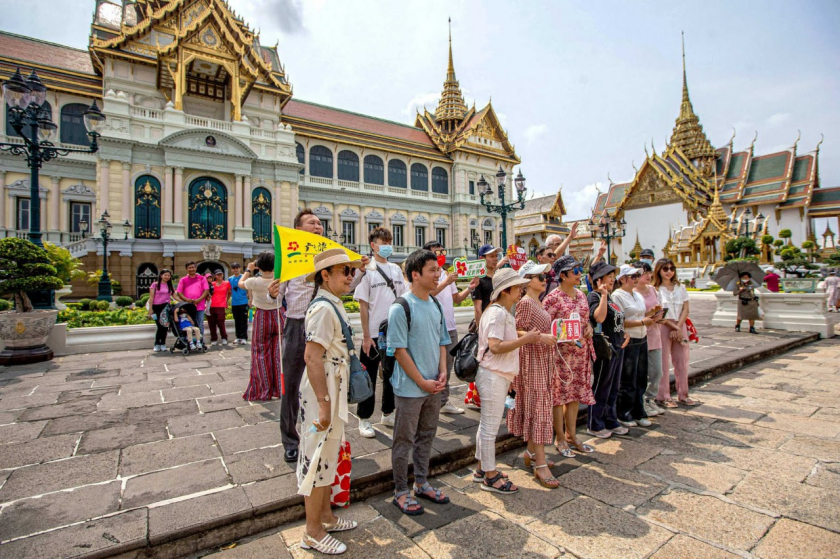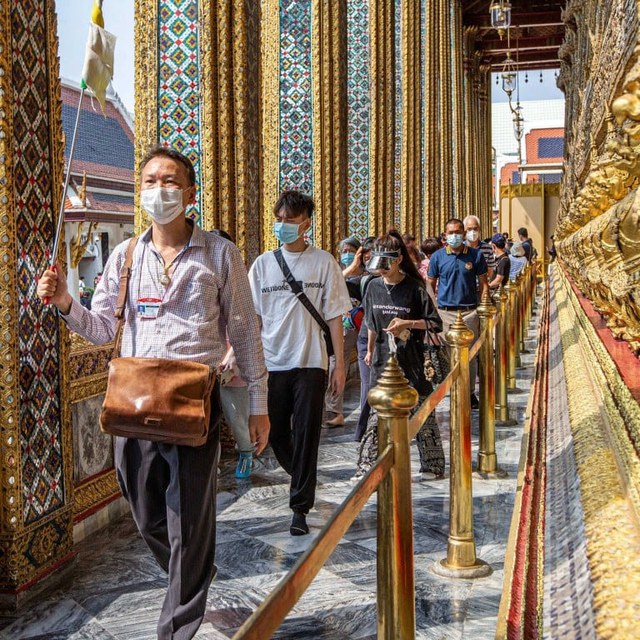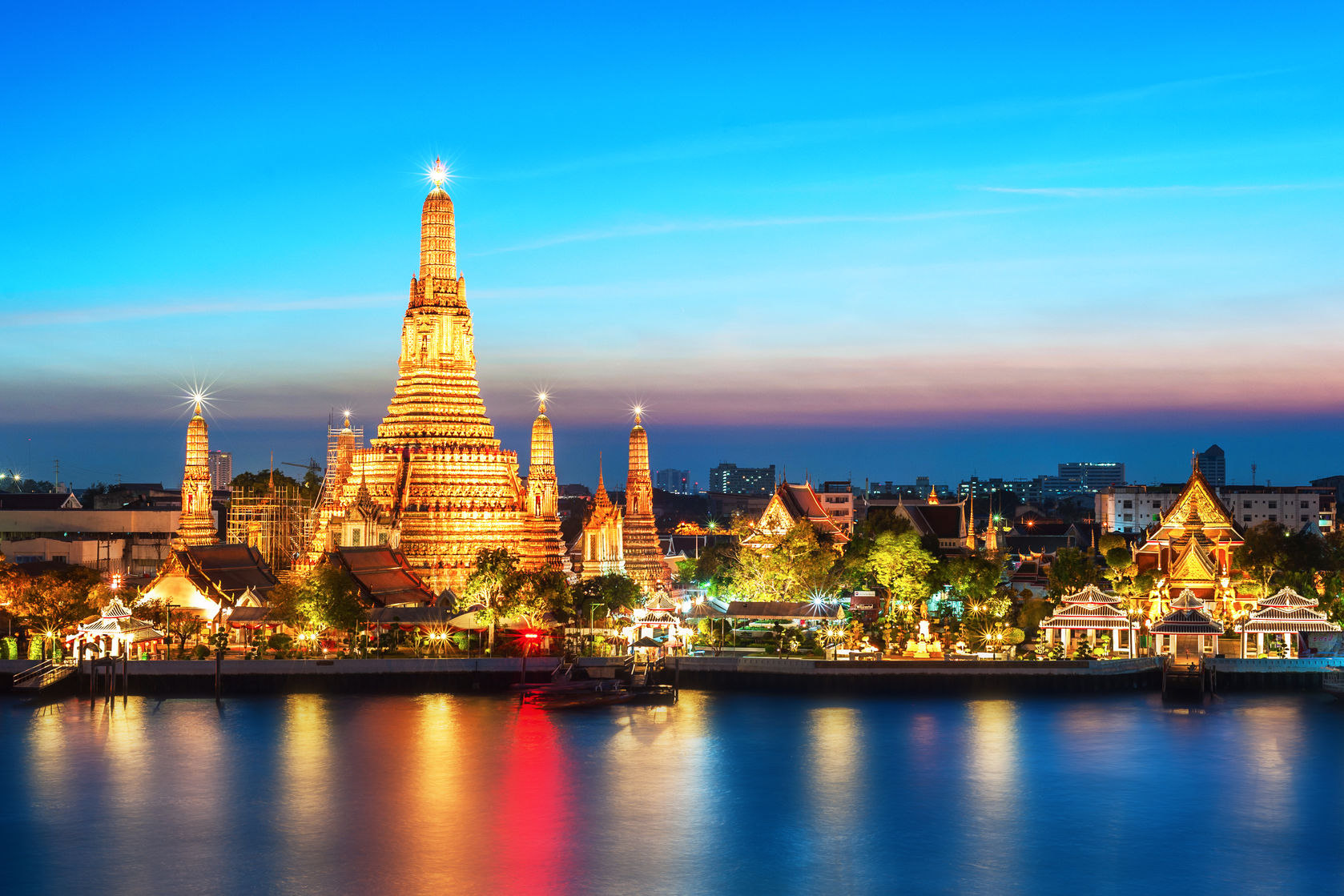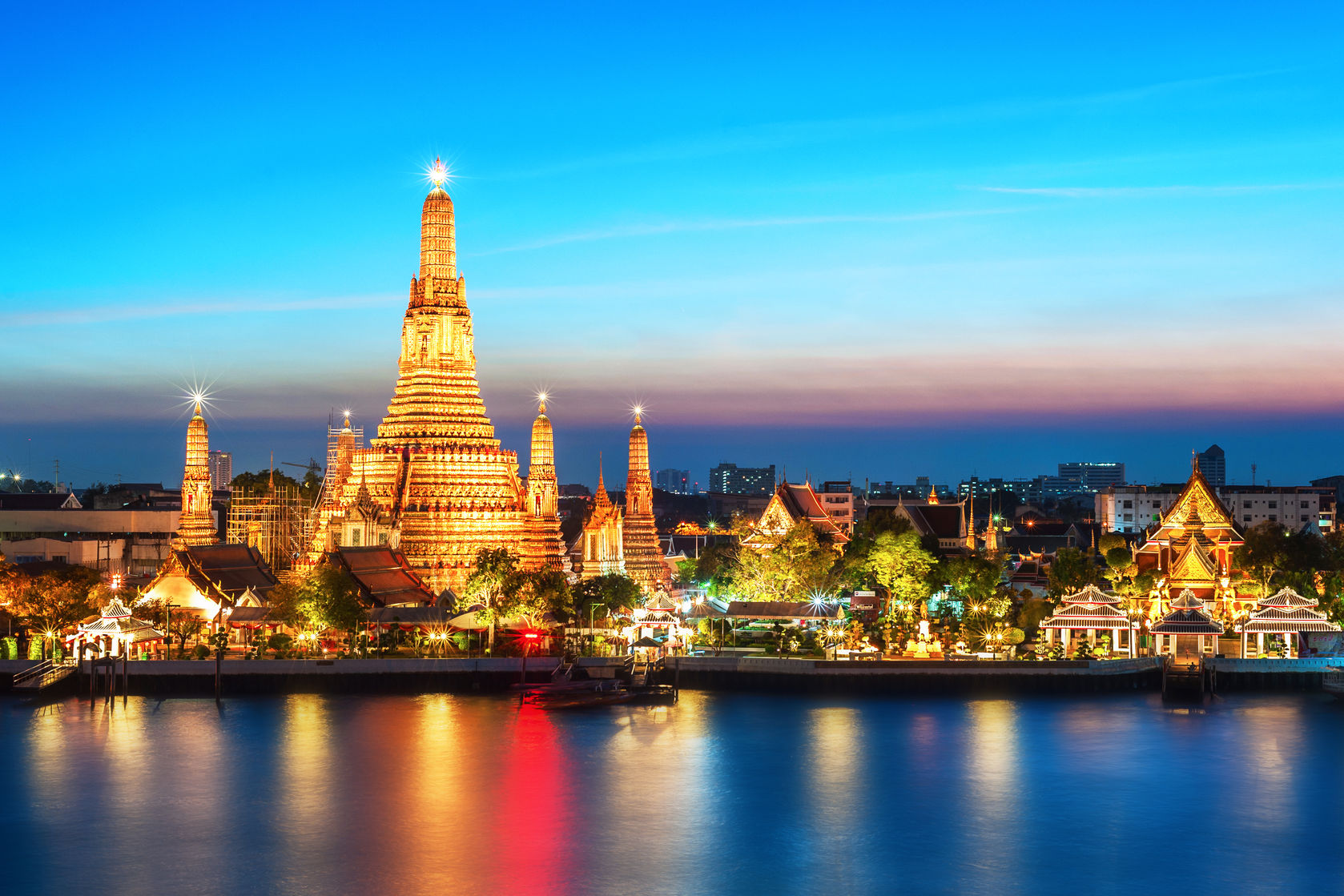Despite his years of experience and fluency in both Mandarin and English, Thai tour guide Saichon Chounchou feels like he's been pushed to the "bottom" of the tourism industry as Chinese tourists return. He's losing jobs to unlicensed Chinese tour guides.
"You can see them everywhere in popular destinations like Phuket, Samui, Chiang Mai, Bangkok... In all those places, the authorities turn a blind eye," Saichon, 48, angrily told the Hong Kong newspaper SCMP.

Chinese tourists visit Bangkok after the pandemic.
According to Saichon, as tourists from China, South Korea, Russia, and other countries return, experts warn that an increasing number of visitors are being directed to foreign travel agencies, most of which are set up to exploit Thailand for money.
Like in other countries, tour guiding is a profession reserved for Thais, and foreigners caught doing so face fines or deportation. However, this practice is still almost openly practiced, Saichon emphasized, highlighting that rampant corruption has allowed foreign-run tourism companies to profit from an industry that accounts for 12% of Thailand's GDP.
"I'm at a disadvantage because I'm following the law," Saichon said.
China is Thailand's leading source of foreign tourists, welcoming 11 million visitors in 2019, accounting for a quarter of the country's total international visitors, and this year, immediately after returning from the pandemic, the number is expected to be around 7-8 million out of approximately 30 million.
The spending of Chinese tourists "saved" Thai tour operators, drivers, hotels, restaurants, and others whose incomes were wiped out during the pandemic and whose savings were eroded by inflation. However, the return of Chinese tourists also led to illegal competition and job losses for Thai tour guides.
Thai businesses are not making a profit.
Chada Triamvithaya, a China expert at the King Mongkut Ladkrang Institute of Technology in Bangkok, said: "Before Covid-19, Chinese tour groups only hired Thai guides to accompany them, while the Chinese guides did the main work. Post-Covid-19, smaller groups of mainland Chinese, Taiwanese, and Hong Kong tourists need a more suitable travel itinerary, so they have used Chinese travel agencies run by Chinese citizens in Thailand."
Ms. Chada stated that many Chinese tour guides, holding student visas, work for low wages and receive commissions for taking tourists to shopping outlets owned by Chinese businesses in Thailand.
"Therefore, ultimately, Thai businesses and industries do not profit from tourism activities," she said.
Paisarn Suethanuwong, one of 5,000 Mandarin-speaking tour guides in Thailand, said he is fed up with a system he believes is rigged against local guides. He is lobbying the Thai Professional Tour Guides Association to submit a petition to the Thai government in the coming days, calling for action to prevent the benefits of the country's tourism from falling into the hands of Chinese businesses.
"Chinese travel agencies sell tours at very low prices," he said, so tour guides often earn their income from commissions.
According to the Thai Ministry of Tourism, as of January 2023, there were approximately 59,000 licensed tour guides in Thailand. Recently, the Minister of Labour stated that foreign tour guides are harming jobs in the tourism industry and urged the public to report the use of unlicensed foreign tour guides through the government hotline.

Chinese tourists are being guided by Chinese people in Thailand.
The same situation occurs with South Korean tourists, who always prefer to hire guides from their own country and only use Thai guides to avoid unexpected inspections by authorities.
"If this continues, Thailand's tourism industry will fall into foreign hands. If local workers have no control over the industry, there will be no incentive for local businesses to participate in tourism-related activities," a tour guide emphasized, adding that Russian tourists also hire their own guides instead of Thai ones.
Thai tour guides face unemployment.
Late last year, a Chinese man named Tuhao (who had acquired Thai citizenship) was arrested on charges of money laundering and drug trafficking. He ran a vast illicit business network that channeled money through jewelry, casinos, and large entertainment companies to a clientele primarily composed of Chinese nationals in Thailand.
Thai police investigators say foreign mafia gangs use corrupt local officials to enter the country, and Thais are nominated to set up shell companies with 51% local ownership, which then spring up unchecked.
Tour guide Paisarn added: Many of these "black market" business owners started in tourism before expanding into other sectors. His colleague, Saichon, who has proudly shown tourists the interesting aspects of the country for the past 27 years, built on passion, is now facing the risk of unemployment due to Chinese workers in his own country.

 VI
VI EN
EN

































